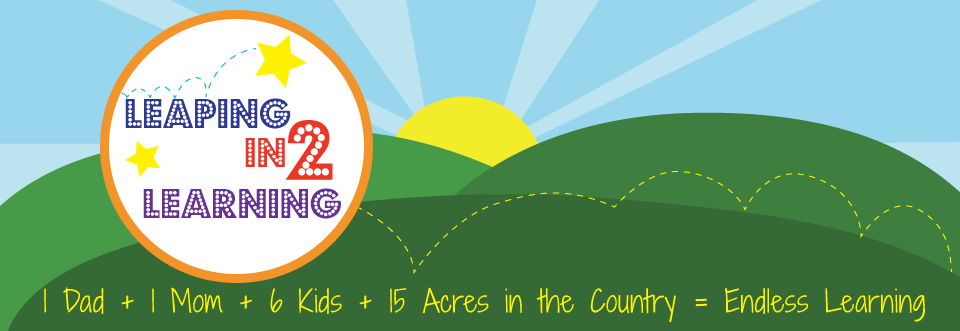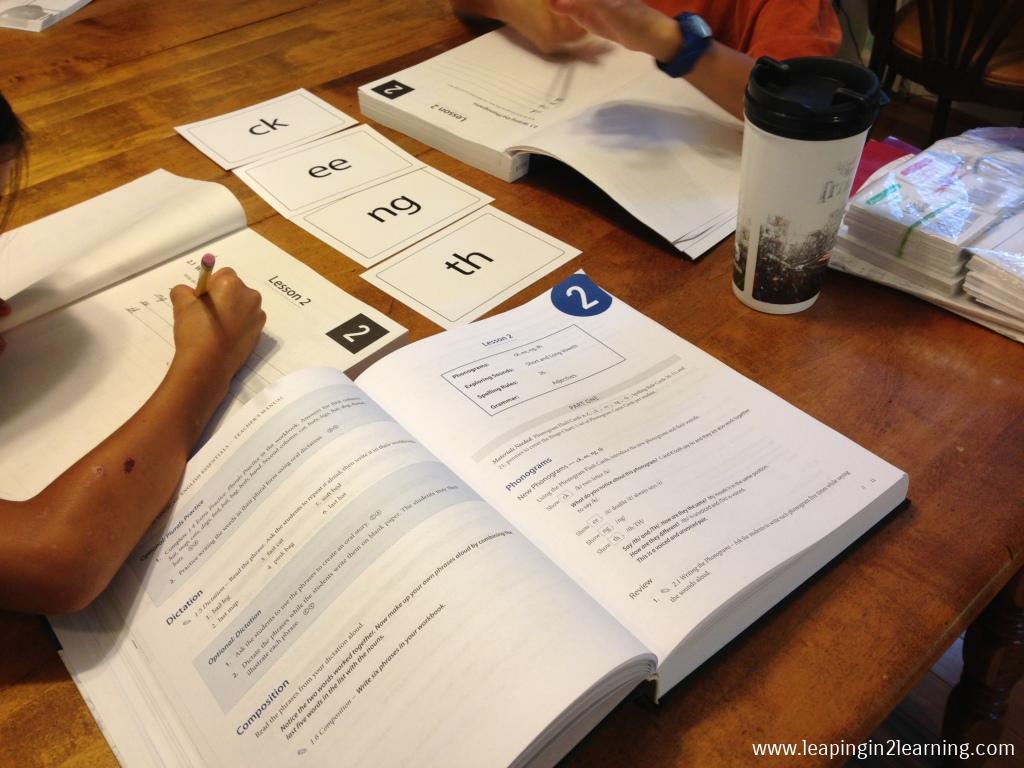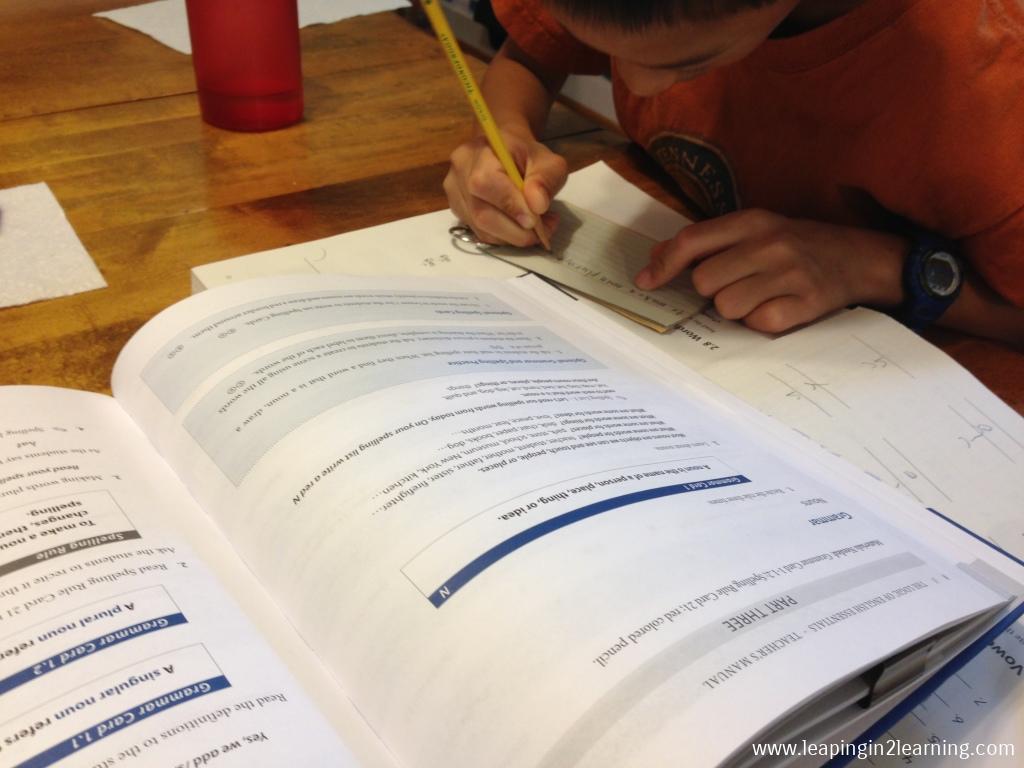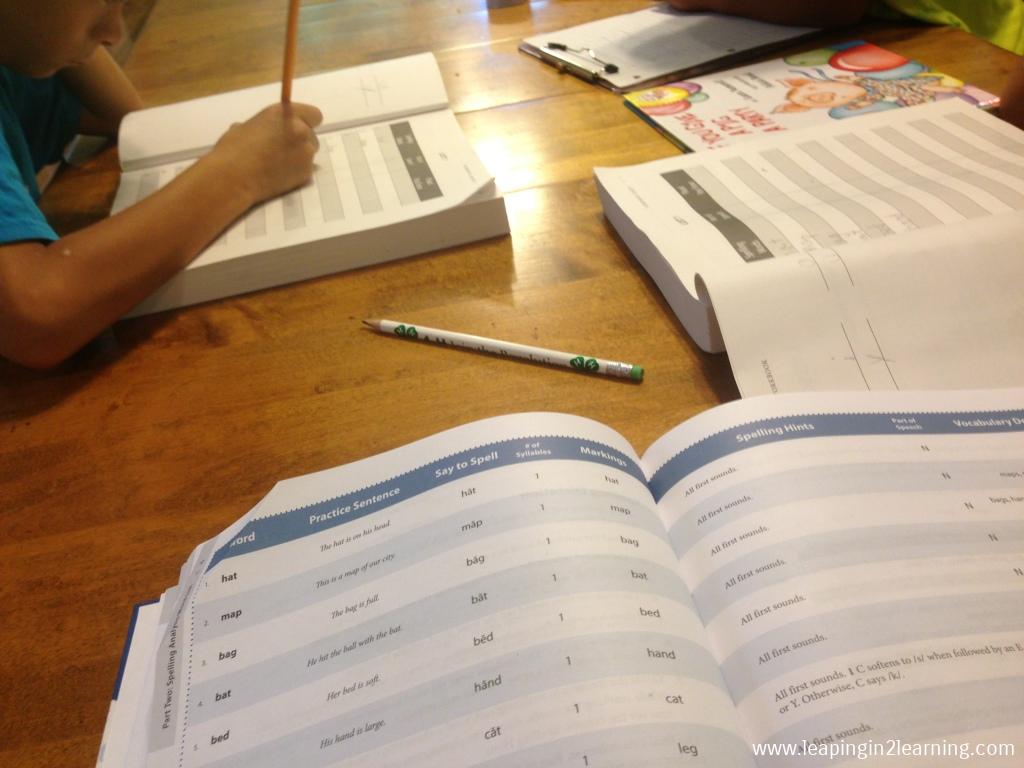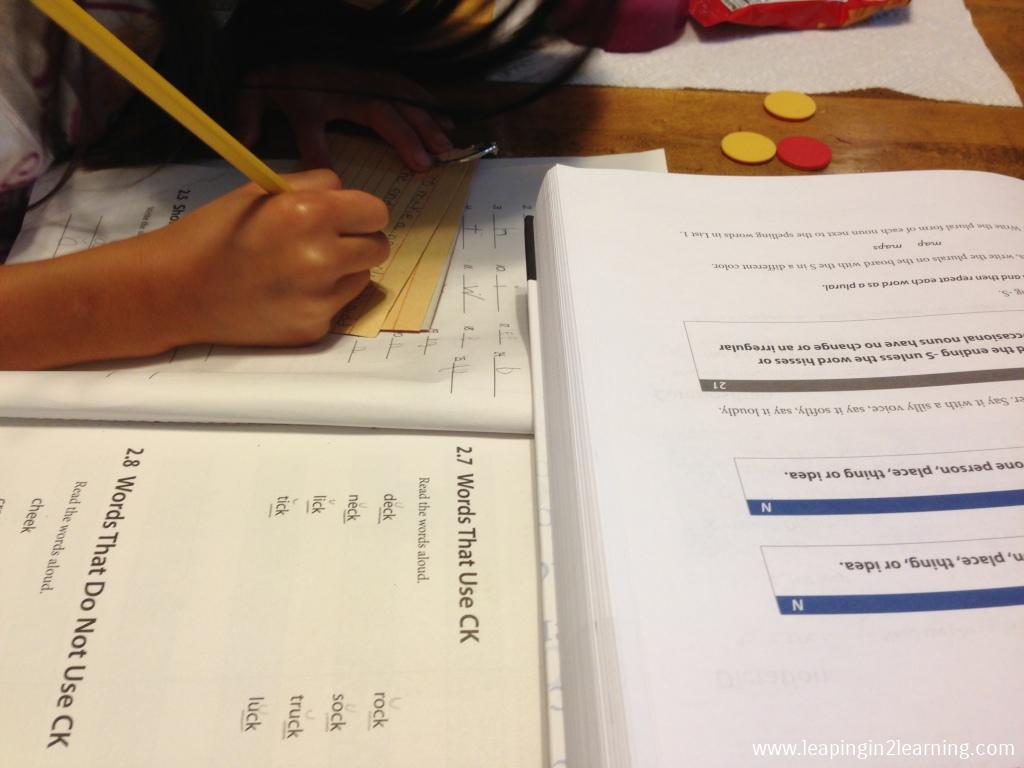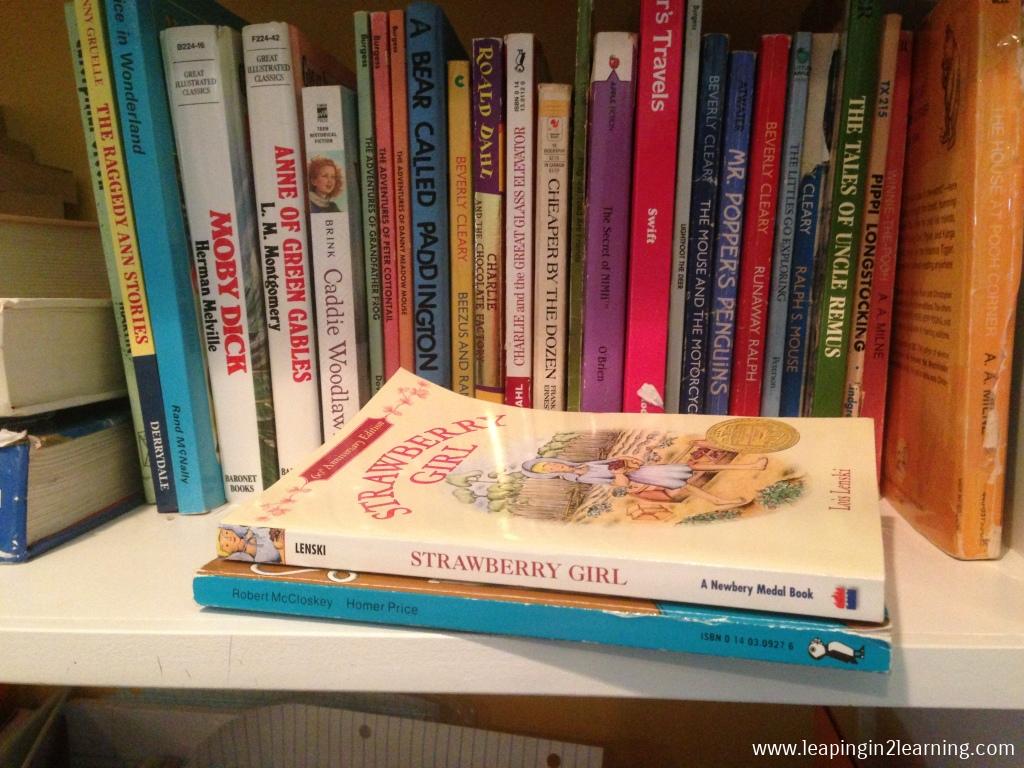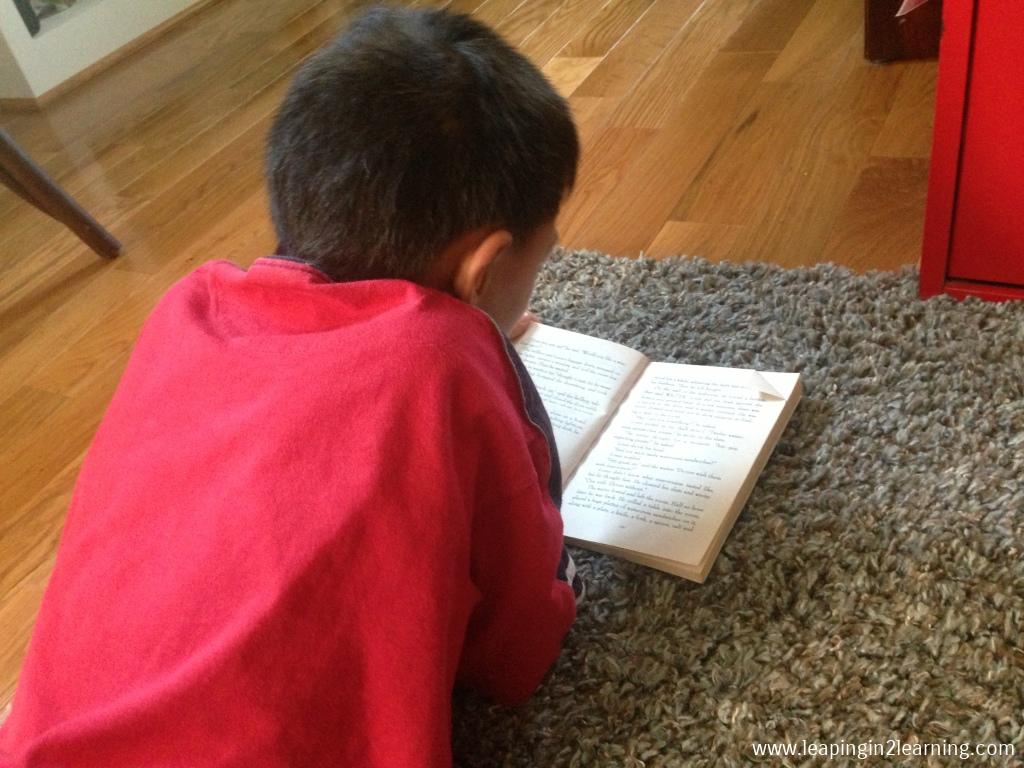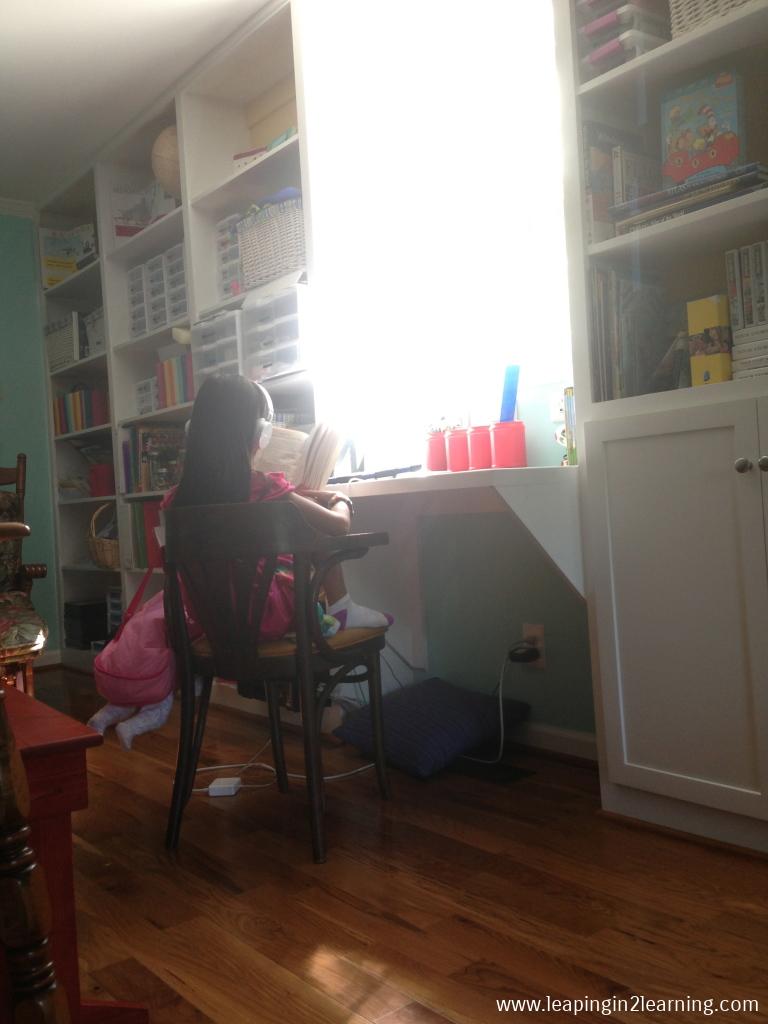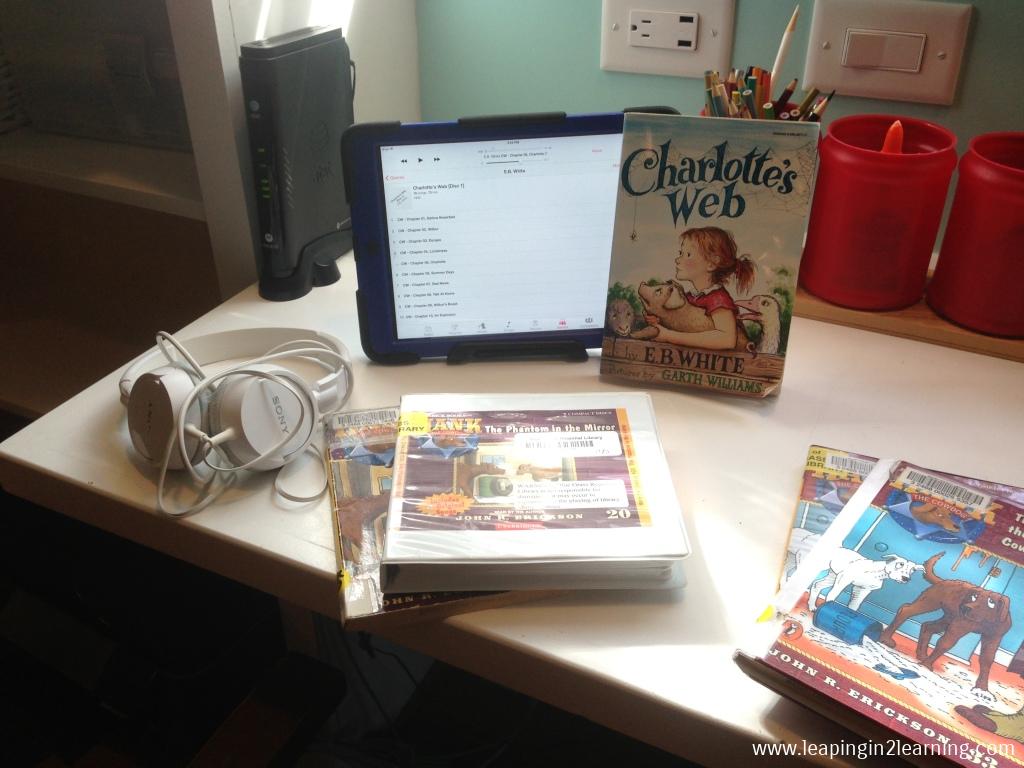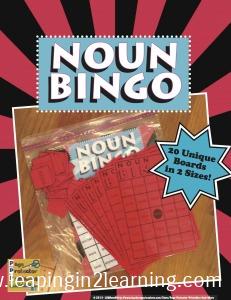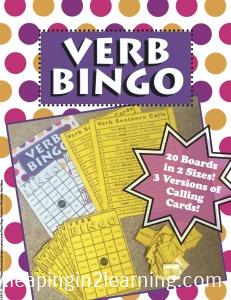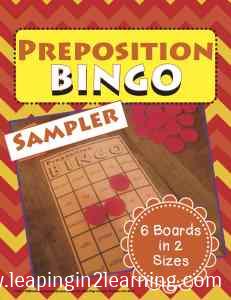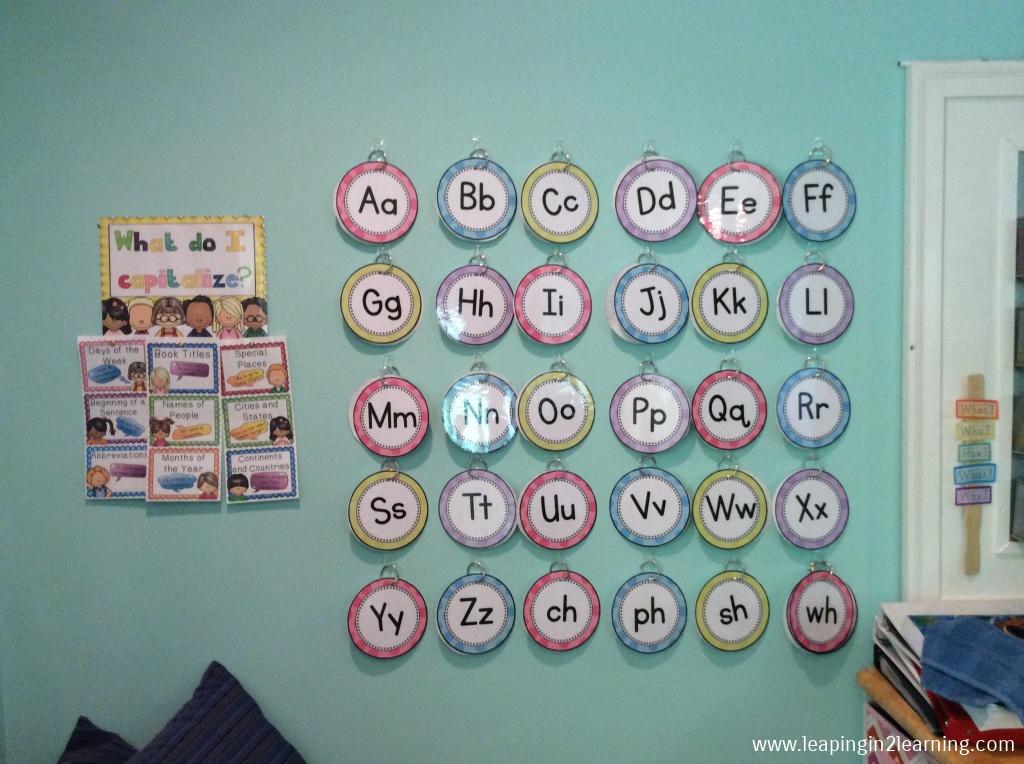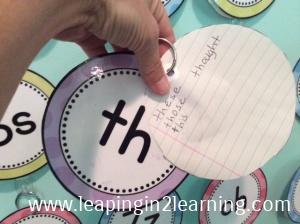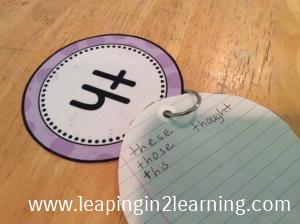… should be a banned phrase.
OK, in all seriousness, it shouldn’t. However, hearing this phrase 100+ times a week can in fact make one contemplate whether or not writing is in fact a necessary part of the school day.
Of course, writing isn’t optional, so what to do?
Well you could spell the words for your students 1,589 times a week or you can encourage them in creative ways to become more confident in their abilities to decode and decipher. I’m choosing option B more often than not these days. Below I’ll outline 5 ways to achieve spelling independence, and I will share in this widget some tools and books we use in our spelling lessons.
5 Ways to Achieve Spelling Independence
1. Use a spelling program.
That seems obvious enough doesn’t it? I have tried. Believe me, I’ve tried. I can’t even say that one hasn’t worked, because if I’m being completely honest I just haven’t stuck with it. I don’t even remotely like spelling lessons. I guess part of the blame lies in the fact that spelling comes very naturally for me, and I suppose in a way I just think (and secretly wish) it was that way for everyone. But it isn’t.
So we’re using The Logic Of English Essentials Teacher Guide and Student Cursive Workbook along with the Phonogram Cards and Gamebook. My 3rd graders love the games of course, and the lessons aren’t so bad. I have one natural speller and one who spells completely phonetically, which just doesn’t work for most English words beyond CVC words.
I am using this resource with both students for now, but there may come a time as the year progresses where I will need to spend some one-on-one time with them on spelling. When and how, I’m not sure yet, but we’ll make it work!
2. Read books that stretch their fluency skills and comprehension threshold.
Of course, the teacher needs to be available to help them decode unknown words and to encourage your students as they work hard to read challenging books.
I highly recommend classic books that have filled countless imaginative minds for generations. I have a shelf in our library that has a huge menu if you will of books for my 3rd graders to pull from once they finish a book. They are ALWAYS reading a book to themselves, and it is always one of their choosing.
If they find it on that shelf, they can just get started. If they choose one at our local library, I do reserve the final call on whether it is appropriate and meets their reading level needs. They do a great job of seeking out appropriate books though.
3. Listen to audiobooks and read along in the paper version every single day.
I can’t even emphasize how valuable this is, and it is something my 3rd graders will ask to do first. I never have to encourage them on this daily language choice, because they love to listen to audiobooks and read along silently in the paper version of the book.
We use our local library exclusively for this school tool. While there are a few sites like tumblebooks, the best option we’ve found is to check out the audiobook and the paper version at our library. You can find many books for free on-line as well.
4. Play games that reinforce spelling rules and lay a foundation of understanding grammar basics.
We have a couple of favorites including Very Silly Sentences and Learning Resources Words On My Mind
.
In addition, we use my Parts of Speech BINGO games and many other DIY games I’ve made from Pinterest ideas and blog suggestions. Below you can click on the photos to read more about my Parts of Speech BINGO games. Don’t forget my FB page is where you’ll find links to flash freebies. 
5. Provide an interactive environment for your young spellers!
I made an interactive Word Wall in our library, and now when I’m asked to spell a word they write it on the word wall cards! They use this ALL THE TIME. They like it, it is useful, and it was actually quite simple to make!
You could do this in many ways. Lots of ideas can be found on Pinterest. You can find many options for ABC Word Wall cards at Teachers Pay Teachers too, including the one I found {here}.
I hope you’ve found these suggestions for spelling achievement helpful! Please share in the comments how you help your students work toward spelling independence. I’d love to hear from you.

